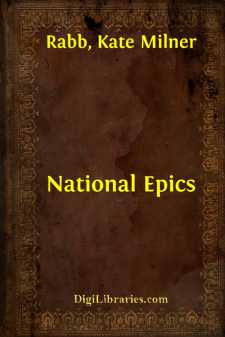Categories
- Antiques & Collectibles 13
- Architecture 36
- Art 48
- Bibles 22
- Biography & Autobiography 814
- Body, Mind & Spirit 145
- Business & Economics 28
- Children's Books 17
- Children's Fiction 14
- Computers 4
- Cooking 94
- Crafts & Hobbies 4
- Drama 346
- Education 56
- Family & Relationships 59
- Fiction 11833
- Foreign Language Study 3
- Games 19
- Gardening 17
- Health & Fitness 34
- History 1378
- House & Home 1
- Humor 147
- Juvenile Fiction 1873
- Juvenile Nonfiction 202
- Language Arts & Disciplines 89
- Law 16
- Literary Collections 686
- Literary Criticism 179
- Mathematics 13
- Medical 41
- Music 40
- Nature 179
- Non-Classifiable 1768
- Performing Arts 7
- Periodicals 1453
- Philosophy 66
- Photography 2
- Poetry 897
- Political Science 203
- Psychology 45
- Reference 154
- Religion 516
- Science 126
- Self-Help 85
- Social Science 82
- Sports & Recreation 34
- Study Aids 3
- Technology & Engineering 59
- Transportation 23
- Travel 463
- True Crime 29
Our website is made possible by displaying online advertisements to our visitors.
Please consider supporting us by disabling your ad blocker.
National Epics
by: Kate Milner Rabb
Description:
Excerpt
PREFACE.
This volume is intended for an introduction to the study of the epics. While the simplicity and directness of the epic style seem to make such a book unnecessary, the fact that to many persons of literary tastes some of these great poems are inaccessible, and that to many more the pleasure of exploring for themselves "the realms of gold" is rendered impossible by the cares of business, has seemed sufficient excuse for its being. Though the beauty of the original is of necessity lost in a condensation of this kind, an endeavor has been made to preserve the characteristic epithets, and to retain what Mr. Arnold called "the simple truth about the matter of the poem." It is believed that the sketch prefacing each story, giving briefly the length, versification, and history of the poem, will have its value to those readers who have not access to the epics, and that the selections following the story, each recounting a complete incident, will give a better idea of the epic than could be formed from passages scattered through the text.
The epic originated among tribes of barbarians, who deified departed heroes and recited legends in praise of their deeds. As the hymn developed, the chorus and strophe were dropped, and the narrative only was preserved. The word "epic" was used simply to distinguish the narrative poem, which was recited, from the lyric, which was sung, and from the dramatic, which was acted.
As the nation passed from childhood to youth, the legends of the hero that each wandering minstrel had changed to suit his fancy, were collected and fused into one by some great poet, who by his power of unification made this written epic his own.
This is the origin of the Hindu epics, the "Iliad" and the "Odyssey," the "Kalevala," the "Shah-Nameh," "Beowulf," the "Nibelungen Lied," the "Cid," and the "Song of Roland."
The conditions for the production of the primitive epic exist but once in a nation's growth. Its later epics must be written on subjects of national importance, chosen by the poet, who arranges and embellishes his material according to the rules of the primitive epic. To this class belong the "Aeneid," the "Jerusalem Delivered," and the "Lusiad." Dante's poem is broader, for it is the epic of mediaeval Christianity. Milton likewise sought "higher argument" than
"Wars, hitherto the only argument
Heroic deemed,"
and crystallized the religious beliefs of his time in "Paradise Lost."
The characteristics both of the primitive and the modern epic are their uniform metre, simplicity of construction, concentration of action into a short time, and the use of episode and dialogue. The main difference lies in the impersonality of the primitive epic, whose author has so skillfully hidden himself behind his work that, as some one has said of Homer, "his heroes are immortal, but his own existence is doubtful."
Although the historical events chronicled in the epics have in every case been so distorted by the fancy of the poets that they cannot be accepted as history, the epics are storehouses of information concerning ancient manners and customs, religious beliefs, forms of government, treatment of women, and habits of feeling....


